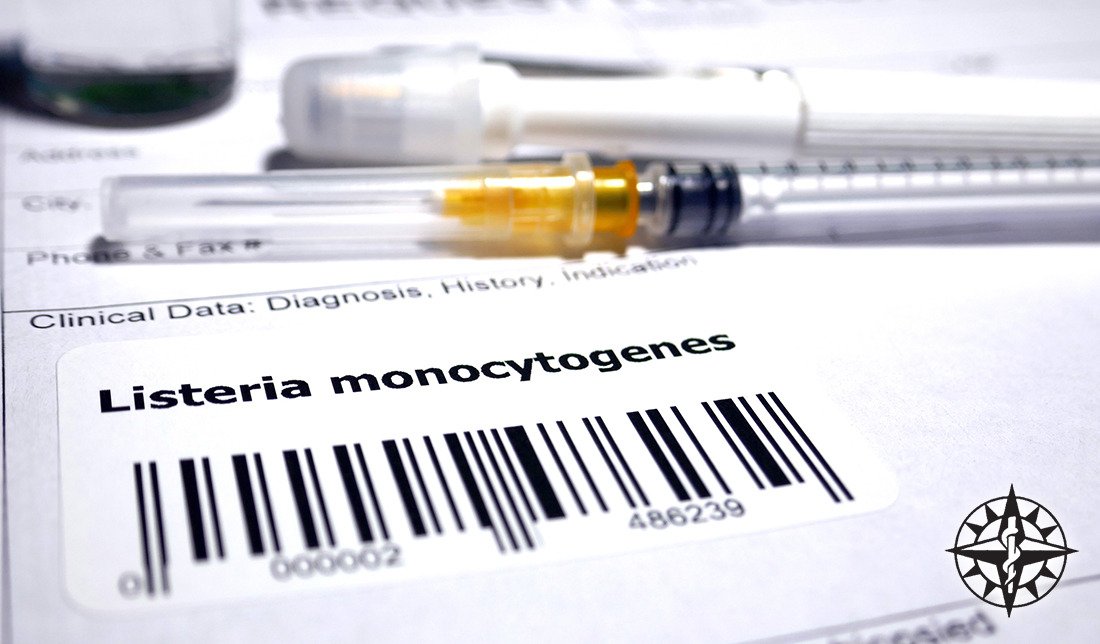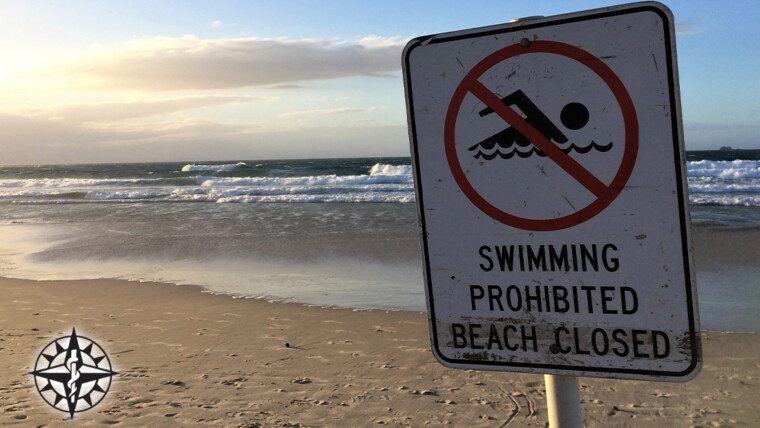Published on: September 11, 2023
A Floridian’s Guide to Staying Safe
Introduction
Meet Listeria monocytogenes, or Listeria for short. It’s a tricky little bacterium that causes a severe infection called Listeriosis. This infection is especially nasty for pregnant women, newborns, the elderly, and folks with weakened immune systems. Even though it’s relatively rare, Listeriosis has a high mortality rate, leading to about 1,600 cases and 260 deaths yearly in the United States. So, people worldwide, including those in Florida, must watch out for this dangerous infection. That’s why it’s essential to know about Listeria – its history, how it spreads, the symptoms it causes, available treatments, and how to prevent it.
In this article, we’ll explore the history of Listeria, its symptoms, prevention tips, and some recent outbreaks in Florida. We aim to equip you with the essential knowledge to protect yourself and your loved ones from this dangerous bacterium and infection.
Early History
Listeria monocytogenes was first discovered by British bacteriologist E.G.D. Murray in 1926, during a time when the scientific community was making significant strides in the field of microbiology. Murray isolated the bacterium from laboratory guinea pigs and rabbits that had developed a sudden and fatal infection, marking the first recorded instance of this pathogen being identified. This discovery was a pivotal moment in the history of infectious diseases as it led to a deeper understanding of a bacterium that would later be associated with numerous foodborne outbreaks worldwide.
In the years following its discovery, researchers found that Listeria monocytogenes was present in laboratory animals and various natural environments. It was detected in soil, water, and vegetation, indicating its widespread presence in the environment. This wide presence made the bacterium particularly challenging to control and prevent its spread.
As research progressed, it became evident that Listeria monocytogenes could survive and even thrive in conditions inhospitable to many other bacteria. It resisted low temperatures, high salt concentrations, and acidic environments. This resilience contributed to its ability to contaminate various food products, from raw fruits and vegetables to processed and ready-to-eat foods.
Over the decades since its discovery, sporadic outbreaks of Listeriosis have occurred worldwide, often linked to consuming contaminated food products. One of the most notable outbreaks occurred in the 1980s in California, USA, where many cases were related to consuming contaminated cheese. This outbreak increased awareness of the risks associated with Listeria contamination and prompted changes in food safety regulations and practices.
Listeria Recent Advances and Discoveries
In recent years, advances in molecular biology and genomics have provided new insights into the virulence mechanisms of Listeria monocytogenes and its ability to cause disease. Researchers have identified specific genes and pathways contributing to the bacterium’s ability to invade host cells, evade the immune system, and cause infection.
Despite these advances, Listeria monocytogenes continues to pose a significant public health threat, and efforts to control its spread and prevent outbreaks remain a top priority for food safety authorities worldwide.
The Battle Plan: Treatment Options
In recent years, advances in molecular biology and genomics have provided new insights into the virulence mechanisms of Listeria monocytogenes and its ability to cause disease. Researchers have identified specific genes and pathways contributing to the bacterium’s ability to invade host cells, evade the immune system, and cause infection.
Despite these advances, Listeria monocytogenes continues to pose a significant public health threat, and efforts to control its spread and prevent outbreaks remain a top priority for food safety authorities worldwide.
Milk, Meat, Produce: Listeria is an Equal Opportunity Contaminator
As mentioned, Listeria monocytogenes can be very pesky in soil, water, and vegetation. It can also be present in some animals like poultry and cattle. Unfortunately, this bacterium can contaminate many food products, including raw milk, cheese, deli meats, hot dogs, smoked seafood, and fresh produce. Even though here in Florida, we are not known for a significant dairy industry, products contaminated with Listeria can still make their way into our state through imported foods.
Listeriosis Symptoms
The symptoms of Listeriosis can vary widely among individuals but typically begin with flu-like symptoms, which may include:
- Fever
- Muscle aches
- Gastrointestinal symptoms such as nausea or diarrhea
If the infection progresses and affects the nervous system, it can lead to:
- Headache
- Stiff neck
- Confusion
- Loss of balance
- Convulsions
The symptoms may be milder for pregnant women, but the infection can have severe consequences, including miscarriage, stillbirth, or even infection in the newborn. It is important to note that while some people may experience mild symptoms, others may develop severe and life-threatening complications. Therefore, prompt medical attention is essential for anyone suspected of having Listeriosis.
Treatment & Care for Listeria
Listeriosis is usually treated with antibiotics. The most common antibiotics used are ampicillin and gentamicin. For people allergic to penicillin, trimethoprim-sulfamethoxazole may be used as an alternative. Treatment for Listeria is most effective when started as early as possible. In severe cases, primarily when the infection has spread to the nervous system, hospitalization may be required.
The CDC states that the treatment for Listeriosis depends on the kind and severity of a person’s illness. People with diarrhea should drink plenty of fluids. It is essential to contact a healthcare provider if you have a fever and other symptoms of Listeriosis, such as fatigue and muscle aches, especially if you have eaten food that has been recalled or linked to a recent Listeria outbreak. This precaution is particularly important for pregnant women, individuals aged 65 or older and those with a weakened immune system. If you recently ate food possibly contaminated with Listeria and do not feel sick, then most experts believe you do not need tests or treatment. However, it is always advisable to talk with a healthcare provider if you have questions about what to do.
Preventing Listeriosis
Prevention of Listeriosis involves practicing good hygiene and being cautious about the foods you consume. Here are some tips specific for Floridians and others alike:
- Wash Hands and Surfaces: Wash your hands thoroughly with soap and water before and after handling food. Clean utensils as well as kitchen / food preparation surfaces in your home or commercial kitchen with hot, soapy water.
- Cook Food Thoroughly: Ensure you cook meat, poultry, and eggs thoroughly. Use a food thermometer to verify the internal temperature.
- Store Food Properly: Refrigerate or freeze perishables, prepared foods, and leftovers within two hours of purchasing or cooking.
- Be Cautious with High-Risk Foods: Avoid consuming raw milk, soft cheeses, and deli meats unless labeled as pasteurized.
- Practice Safe Food Handling: Wash fruits and vegetables thoroughly under running water before eating or cooking.
Recent Listeria Outbreaks: A Rising Concern for Floridians
Salmon Recall at Publix Stores
In a recent incident, salmon sold at Florida Publix stores was recalled due to concerns about potential Listeria contamination, and according to a report by WFLA, the U.S. Food and Drug Administration (FDA) announced the recall of smoked salmon products sold in Publix stores across Florida. The recall was initiated after routine testing revealed the presence of Listeria monocytogenes in the product. Consumers were advised to return the product to the store for a full refund or dispose of it properly to avoid health risks.
Salads Recall at Publix Stores
In another incident, salads sold at Publix stores in Florida were also recalled over Listeria concerns. As reported by FOX 35 Orlando, the recall involved a variety of salads sold at Publix stores across the state. The manufacturer identified the affected products during routine testing and immediately initiated the recall. Consumers who purchased the affected salads were advised to return them to the store for a refund or dispose of them properly.
Vidalia Onions Recall
The Ledger reported a recall of Vidalia onions sold at Publix stores due to possible Listeria contamination. The affected onions were distributed to retailers in multiple states, including Florida. The recall was initiated after routine testing by the manufacturer revealed the presence of Listeria monocytogenes on the equipment used to pack the onions. Consumers were advised to check their homes for the recalled onions and return them to the store for a refund or dispose of them properly.
Deadly Listeria Outbreak Linked to Big Olaf Creamery in Sarasota
An outbreak of Listeria monocytogenes infections linked to ice cream supplied by Big Olaf Creamery of Sarasota, Florida, led to the illness of 28 individuals across 11 states between January and August 2022. The FDA and CDC, along with the Florida Department of Health (FL DOH) and Florida Department of Agriculture & Consumer Services (FDACS), conducted an investigation that indicated that Big Olaf ice cream products were the likely source of the outbreak. As a result, Big Olaf Creamery ceased production and distribution of all ice cream products on July 1, 2022, initiated a voluntary recall of all its products, and eventually closed its operations.
The recall affected all flavors, lots, codes, and expiration dates through June 30, 2022. It included products sold at Big Olaf retailers in Florida, restaurants, senior homes, and one location in Fredericksburg, Ohio. Despite the recall, the FDA expressed concern that some retailers might still be selling Big Olaf ice cream products and advised them to stop selling, serving, and disposing of any remaining products. Consumers were also advised to dispose of Big Olaf ice cream products in their freezers.
Of the 28 individuals who fell ill, one case involved the death of an Illinois woman, and another resulted in a miscarriage suffered by a Massachusetts resident. Both cases have led to active wrongful death lawsuits against Big Olaf Creamery. In the Illinois case, the estate alleges she died of Listeriosis 11 days after consuming Big Olaf ice cream in Sarasota. The Massachusetts resident alleges that she miscarried after eating listeria-contaminated ice cream at a wedding in Clearwater.
This outbreak and the ensuing legal actions underscore the severe consequences of foodborne illnesses and the importance of stringent food safety practices.
Conclusion
Listeria is a dangerous bacterium that causes a potentially fatal infection called Listeriosis. Although it is relatively rare, it is vital for Floridians and others to be aware of the risks and to take precautions to prevent disease. This includes practicing good hygiene, cooking food thoroughly, storing food properly, and being cautious with high-risk foods. If you or someone you know develops symptoms of Listeriosis, it is crucial to seek medical attention promptly for proper diagnosis and treatment.
Recent outbreaks, such as the one in Florida linked to Big Olaf Creamery, highlight the importance of routine testing and timely recalls to prevent the spread of the infection. Consumers are advised to stay informed about product recalls and follow the recommendations provided by health authorities and manufacturers. It is essential to check your home for recalled products, return them to the store for a refund, or dispose of them properly to minimize the risk of Listeriosis. In the wake of recent outbreaks, it is more important than ever to remain vigilant and informed about the dangers of Listeria. By taking the necessary precautions, you can protect yourself and your loved ones from this dangerous infection.
About Infectious Disease Associates of Tampa Bay (IDATB)
Infectious Disease Associates of Tampa Bay (IDATB) provides high-quality healthcare services for patients in the Tampa Bay metro area. With over 30 years of experience, IDATB has treated Floridians with infectious diseases while providing an in-house lab for necessary testing. If you have any questions about Listeria or concerns about other infectious diseases, please call us at 813-251-8444.





